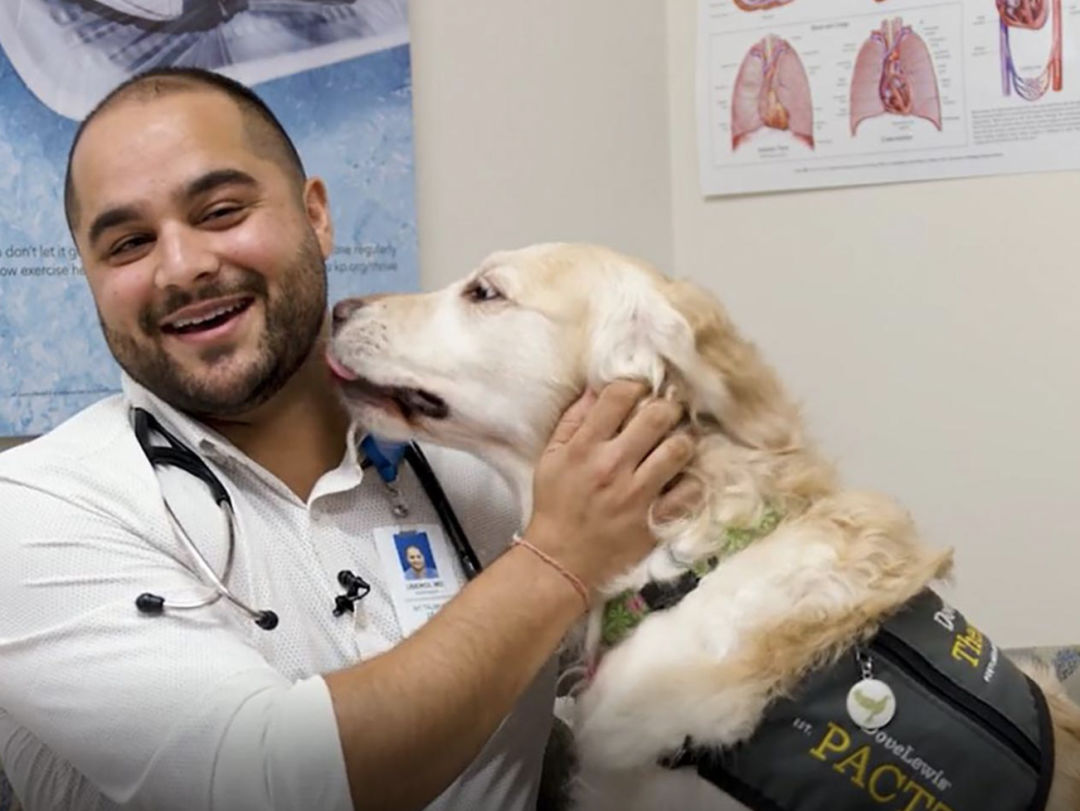Furry Heart, Happy Heart

Image: Courtesy Kaiser Permanente
In the era of COVID-19, social distancing, sudden lockdowns and societal upheaval, our pets may be the only living beings that many people are able to touch and draw comfort from
In the absence of human-to-human contact, in millions of households worldwide, animals have stepped into the breach for many people, providing much-needed comfort via cuddles, pats and a constant physical presence.
And according to Abhimanyu Uberoi, MD, cardiologist for Kaiser Permanente in Oregon, pet ownership can offer a lot more than just warm, fuzzy feelings — it can have a plethora of psychological and physical health benefits as well, especially for your heart.
“The most obvious benefit is the exercise that goes along with an active lifestyle,” said Dr. Uberoi, citing a recent study that revealed dog owners were 54% more likely to get the recommended level of physical activity than non-dog owners, allowing them to reap the benefits of a daily stroll with their pooch.
“When you’re more physically active, blood pressure and cholesterol levels come down, which decreases your risk of cardiovascular events like heart disease,” said Dr. Uberoi. “Also, having a dog means there’s something more than just you to take care of — you can’t be lazy and sit around — you have some sense of responsibility, and the byproduct is that you’re more active.”
A Sense of Purpose
Owning a pet also gives people purpose, which can improve psychological conditions such as depression and chronic stress. “Having that sense of responsibility can help people avoid things like isolation, which can lead to inactivity and unhealthy lifestyle choices,” said Dr. Uberoi, adding that the companionship provided by a pet can decrease feelings of loneliness and stress.
“It’s a mixed bag of benefits,” he said. “You feel psychologically and physically better because you’re exercising, you feel a sense of duty because you have this pet that loves you unequivocally, and that can release positive hormones in the brain.”
The “Cuddle” Hormone
Studies show that the interaction between people and pets boosts the production of “happy” hormones like serotonin, dopamine, and oxytocin. Known as the “cuddle hormone,” oxytocin helps slow your heart rate and breathing, decreases stress hormones, and creates a sense of calm and comfort.
It’s these feel-good hormones that also allow hospital patients (and doctors and nurses) to benefit from the presence of trained therapy animals like Kyla, a therapy dog with DoveLewis Emergency Animal Hospital, and a regular Kaiser Permanente Northwest hospital visitor.
“The actual act of petting an animal can have a positive affect — it relaxes you and helps you forget that you’re stressed out that you just had heart surgery,” joked Dr. Uberoi. “But in all seriousness, it’s a positive experience for everyone to have these therapy animals around. You can sense that connection and mutual enjoyment.”
Learn more about high-quality cardiac care at Kaiser Permanente.
